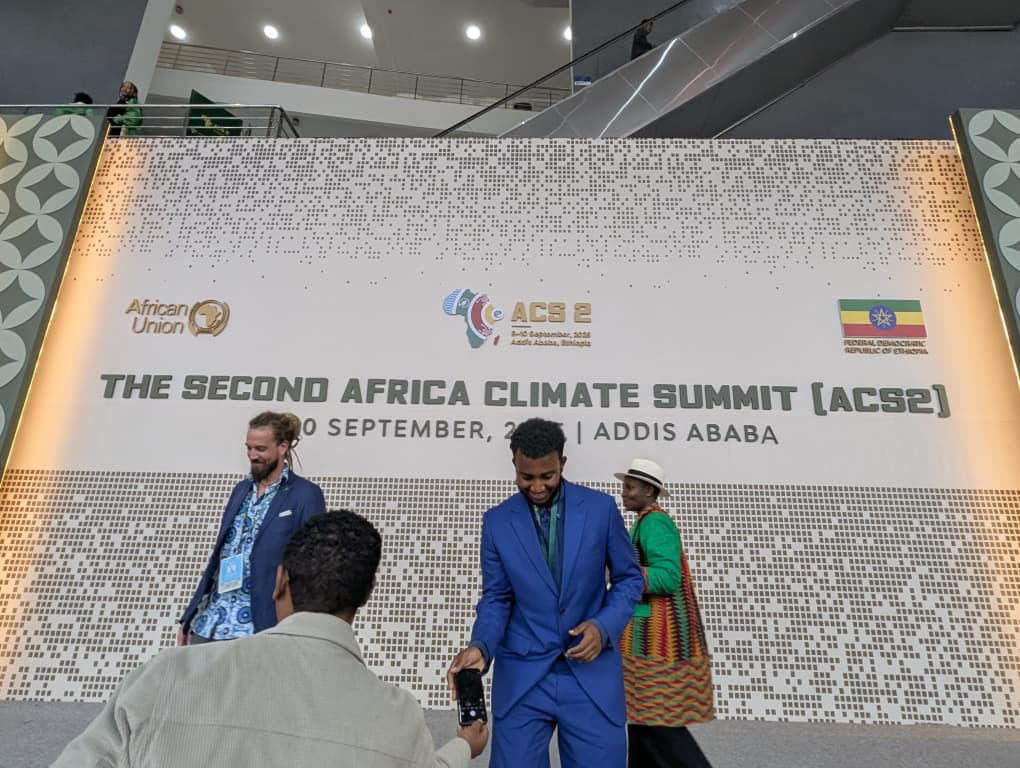African leaders called for regional cooperation and more climate investments, as the second Africa Climate Summit opened this Monday in Addis Ababa. Heads of state urged the continent to play a bigger role in the transition to a cleaner global economy.
Speaking at the opening event, Ethiopian Prime Minister Abiy Ahmed said it’s time to reframe Africa’s role in climate action, instead of focusing on its financial and technological limitations.
“We gather not merely to discuss climate change, but to shape an African decade of delivery, a decade in which ambition becomes pipeline, and pipeline becomes investment backed by sound policy and strong partnerships,” he said.
Second Africa Climate Summit seeks to jump hurdles to green industrialisation
Kenyan President William Ruto agreed, and said during the event’s opening ceremony that Africa’s climate ambition must be fueled by “investment, competitiveness, and sovereignty”.
Despite the continent’s goal to reach 300 GW of renewable capacity by 2030 – a target set out in 2023 in Nairobi – Africa added less than one percent of the world’s renewable deployment last year.
Ruto said this is because “too many investments remain fragmented, too few are scaled, and our regional value chains are not yet strong enough to compete”.
Ahmed said that African leaders gathered in Addis Ababa to attract finance and unlock the continent’s potential climate solutions. “We are here to design the world’s next climate economy,” he said, adding that the summit is where “we commit to do these things together with speed, at scale, and with integrity”.
In the 2023 Nairobi declaration, African leaders adopted a vision to turn the continent into a clean energy hub and to develop local green industries, as the region holds 30% of the world’s critical mineral reserves.
But two years since, a progress report launched in Addis Ababa shows slow gains and many challenges, mainly due to high debt levels in the region and little climate finance channelled into African countries.
Calls for investment in local industries
Ruto called for countries to process critical minerals locally before exporting and develop clean industries, also calling on partners to embrace the vision of Africa “not as a source of raw commodities, but as a continent of innovation, industry, and growth.”
According to the progress report released by Ruto, Africa’s debt distress is crippling its progress, with 32 countries on the continent in or at high risk of debt distress. The report also shows Africa is receiving only 23% of the $190 billion in climate finance it needs annually by 2030.
Businesses doubt COP30 logistics as presidency calls on them to come to Belém
Mahamoud Ali Youssouf , chairperson of the African Union Commission, said Africa requires “fair, significant and predictable” climate finance. He said Africa must collaborate with the international community to address vulnerabilities caused by climate change, debt burden and unfair global financial systems.
To unlock investments, Africa needs to look within itself, said Meron Tesfamichael, director of the Africa energy programme at the World Resources Institute (WRI). She said the continent needs to improve regional trade as well as knowledge sharing that can add value to its clean energy industries.

“Countries like Kenya that have done a lot around geothermal technology and have a lot of expertise and knowledge can share to other countries who wish to explore that way of investment can learn from,” Tesfamichael added.
“Unjust” climate finance
The transition “has not been fair”, said UN Secretary General Antonio Guterres, in a statement read by his climate advisor Selwin Hart at the event opening. He said “the transition is too slow” and the 1.5C limit is slipping out of reach.
Since the adoption of the Paris Agreement ten years ago, four of every five clean energy dollars have gone to advanced economies and China, he added, whereas Africa with 60% of the world’s best solar resources, 30% of critical energy transition minerals, receives just 2% of global clean energy investment.
UN climate chief issues rallying cry on national climate plans as deadline looms
“This is the injustice of our time,” Guterres said, but added that it is also an opportunity because Africa has the resources, the market, people and solutions. “What is missing is not potential, but fair finance and policy certainty”.
To help African countries build truly sustainable economies, Guterres said “the international finance system must work for Africa and not against it”.
He called on developed countries to deliver on their international public climate finance commitments, change outdated models to price risk, reform multilateral development banks and take credible action on debt relief “including skilling up instruments such as debt for climate and nature swap”.

